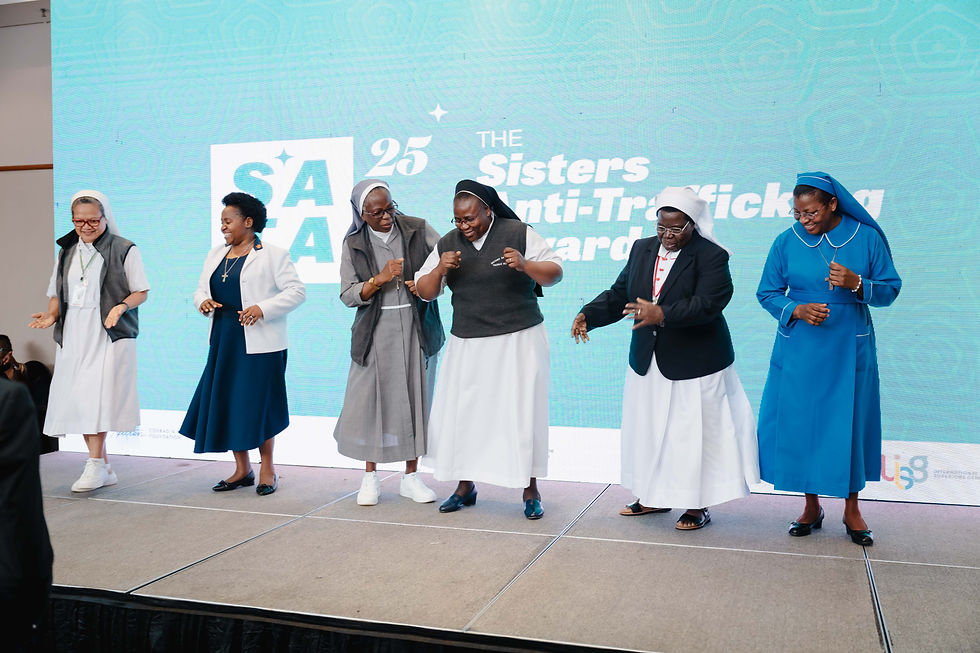The Roma and Albania’s human trafficking mafia
- Arise

- Jul 1, 2020
- 3 min read
Updated: Nov 17, 2021
Albania is ancient, mountainous and rich in minerals and culture, but remains one of Europe’s poorest countries with a sophisticated mafia embroiled in drug, human and organ trafficking.
Now that Covid has joined the scene to exacerbate socio-economic issues, there is little standing between vulnerable communities and traffickers, other than frontline workers.
Lockdown and the Roma
Erion Prendi and Ardita Korriku of SHKEJ, a youth-focused organisation in Arise’s anti-trafficking network, are working to support Albania’s Roma and Egyptian communities through lockdown and its lasting consequences.
SHKEJ works in communities with high unemployment and school dropouts, where people are often reliant on the income garnered from the collection of iron and tin from bins in Albania’s capital, Tirana, from cleaning the streets for local municipalities, or from daily-wage work in garment factories.
After Albania’s lockdown was imposed on the 10th of March, Roma families rallied together to ask the government for help. Little support was extended to the informal workforce and large business sector, like the garment factories at which many Roma are employed. Large swathes of the population were suddenly without their meagre incomes and means to survive.
According to Erion, the earthquake of November 2019 drained the municipality of Tirana of any emergency reserves it may have had. Two small food packages were offered by the municipality to each family during the first months of lockdown. Many starving families were relying exclusively on SHKEJ’s support.
Lockdown and human trafficking
Ana Stakaj is the CEO of Mary Ward Loreto, an organisation in Arise’s network working in rescue, prevention and advocacy against trafficking and exploitation.
On 2 June, Ana attended the second RENATE conference on the effects of Covid on trafficking in Albania.
‘In the two weeks since we came out of lockdown, we have been gathering information [...] Many gangs in the “Albania mafia” that were living abroad during lockdown have returned. There are large-scale killings at the moment. Gangs are fighting with each other and eliminating rivals, both for control of the drug trade and human trafficking.’
Ana explained that not enough data is available to confirm a rise in online sexual exploitation during lockdown in Albania, but that online sex trafficking is by no means new to the landscape. Poor communities like the Roma are often lured into ‘performing’ online in order to survive. Often, threats and blackmail force them to continue in this work, ‘they become like prisoners’.
Post-lockdown anti-slavery sector
Arise’s network in Albania is bracing itself for a new wave of exploitation as gangs and traffickers take advantage of rising vulnerability. But, within the anti-trafficking sector, this period has presented some opportunities.
Covid presented SHKEJ with a strong platform to advocate the importance of formal work to the Roma community: ‘Perhaps our communities will be more eager to increase their capacity alongside us, and aspire towards formal work after this period’.
At Mary Ward Loreto, lockdown gave the organisation time to ‘stop, reflect, re-organise and re-strategise’, and forced them to be nimble and adaptable. ‘We have identified the need to update our services in and knowledge of technology. We know online sexual exploitation is happening but we don’t have the tech savviness to measure it. One of the conclusions of the conference was to approach tech companies who have a high sense of social responsibility and involve them in our projects, so that we can measure and counter exploitation in the virtual realm.’
To support Arise and our anti-slavery network, rising to the challenges presented by Covid in some of the highest risk communities in the world, donate here








Comments